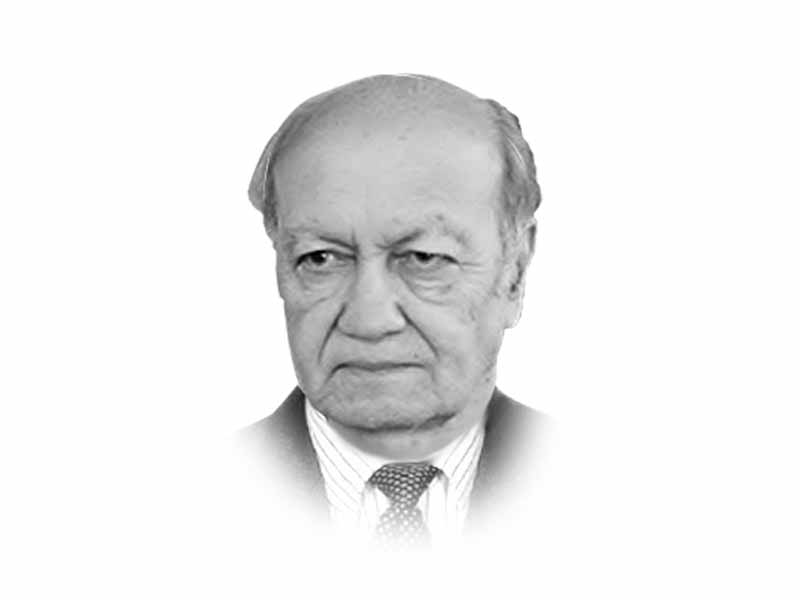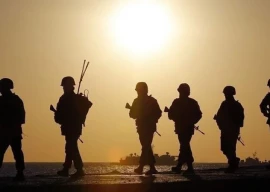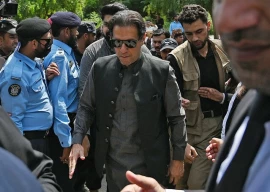
These developments indicate how much China and India have improved their relations in the last few years. It is not that they have solved their border dispute or overcome their strategic divergence. But they engage positively and cooperate where interests converge to advance the larger goal of building their economies and achieving political stability.
The Chinese leadership has deliberately avoided any proactive role in regional disputes that do not affect the countries directly. But as China’s power grows, this policy could change. Already, a glimpse of this was witnessed when the Chinese leadership hosted talks between the Afghan government and the Taliban. It goes to their credit that the Chinese commanded respect from all the stakeholders. The question now arises: is Fan Changlong’s visit a precursor to China’s role as a stabiliser in a volatility-prone South Asia? In all probability, during his visit to India, he will try to allay any fears regarding the CPEC and will probably explore the possibility, if any, of Beijing playing a role in reducing tensions between the two countries. China realises the dangers inherent in South Asia and how these could affect Afghanistan, where the situation is already getting messy. Any conflagration between India and Pakistan will have a spillover effect and place China in an awkward position.
While Pakistanis of all strata are generally appreciative of China’s policy of harmonising relations with neighbours to focus more on internal development and prosperity, they have not been successful in applying this approach in their own context. Of course, for this state of affairs, the blame rests equally on our neighbour.
There are lessons for Pakistan and India in this approach. If they cannot solve their intractable problems in the near future, at least they can stabilise the situation on the border, engage more robustly in trade and commerce, and maintain contact at the political level so that greater attention could be given to addressing challenging problems facing the people. But with the BJP’s intransigent attitude and the Pakistani establishment in no mood to show flexibility, relations remain frozen, which portends danger.
India has developed the Cold Start doctrine and Pakistan’s riposte is the introduction of tactical nuclear weapons. Realising that threatening a nuclear Pakistan with conventional raids is not enough, India is producing its own version of tactical nuclear weapons. And the two countries are not on speaking terms, and Pakistan, despite its best efforts, does not have full control over jihadi elements. These are dangerous developments in a nuclear environment and prudence demands that both countries revisit their policies of focusing on tactical nuclear weapons and strategic doctrines, and renew dialogue.
In all this, the role of the US has not been helpful. It has been putting pressure on Pakistan to apply restraint or preferably halt its enrichment programme and restrict its nuclear build-up. In sharp contrast, Washington is supplying the latest weapons and equipment to India and promoting its membership of the Nuclear Suppliers Group, while denying the same to Pakistan. The US and other nuclear powers, with the exception of China, are opposed to accepting Pakistan’s request for membership. These discriminatory policies increase Pakistan’s insecurities and its reliance on the nuclear shield keeps growing. Its declared policy of full spectrum deterrence indicates that it aims at maintaining strategic balance (as opposed to strategic parity) with India to counter its neighbour’s hegemonic ambitions.
During Prime Minister Nawaz Sharif’s visit to the US, he was again told to rein in the Lashkar-e-Taiba and the Haqqani network. There was dissatisfaction that those involved in the Mumbai terrorist attack remain free. It will be in Pakistan’s interest to pursue these cases to their logical end. After all, our conviction that we could bring India to the negotiating table through support for insurgency has not worked. Equally, India’s policy of subjugating Kashmiris by brute military might has proved to be a complete failure as well. It is a different matter that pure expediency does not allow Obama or any European leader to voice concern over the plight of Kashmiris. So why not accept the reality like mature nations and engage in dialogue rather than totally rely on military build-ups and nuclear gamesmanship, thereby risking the lives of millions?
If relations were to improve, there would be relatively greater chance of moving towards some form of solution. Clearly, the present policy of both countries has resulted in greater hardship for the Kashmiris and pulled the two countries further apart. It diverts Pakistan’s scarce national resources towards military build-up and intrinsically weakens its economy and political development, apart from diverting focus from combating terrorism. Our policy also further increases the civil-military imbalance with external security taking precedence over internal stability and peace.
Published in The Express Tribune, November 4th, 2015.
Like Opinion & Editorial on Facebook, follow @ETOpEd on Twitter to receive all updates on all our daily pieces.












COMMENTS (23)
Comments are moderated and generally will be posted if they are on-topic and not abusive.
For more information, please see our Comments FAQ